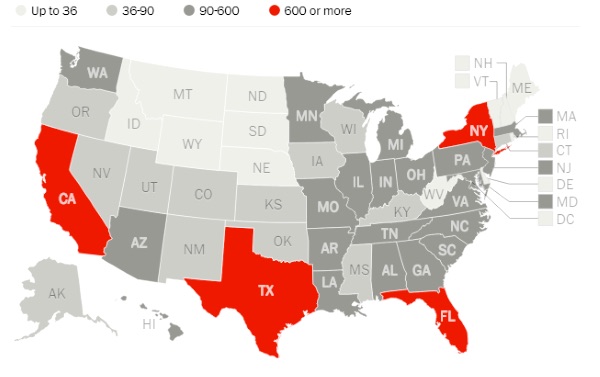A Wisconsin bacteria outbreak known as Elizabethkingia has been linked to more than a dozen deaths. Health officials confirm that a northern Illinois resident who died after being diagnosed this year with a blood infection known as Elizabethkingia had the same strain of the bacteria.
The Illinois resident’s age nor many other details were released, but Melaney Arnold, spokeswoman for the Illinois Department of Public Health (IDPH), said the individual had suffered from underlying health issues caused by the Wisconsin outbreak, according to USA Today. The infection is hard to treat because it’s antibiotic resistant. While many may be anxious about the spread of Zika virus to the United States, a rare infectious disease has claimed the lives of at least 20 in the Midwest.
IDPH officials have sent alerts to hospitals requesting they report all cases of Elizabethkingia and save any specimens for possible laboratory testing, Arnold added in a statement. Because Elizabethkingia are opportunistic pathogens that prey on people with weakened immune systems, health officials don’t know if the infection has actually killed anyone.
The infection has infected 48 mostly elderly people in Wisconsin, killing 15. Wisconsin, Michigan and Illinois have each reported one death and one person infected, the statement said.
The patients who died in Wisconsin had serious underlying conditions, health officials have said, and it remains unclear whether the bacteria caused all the fatalities. Public health investigators have been interviewing patients and family members, taking environmental samples, taking samples from family members and patients in the same facilities and units as infected patients and reviewing medical records.
Wisconsin, Michigan and Illinois investigators are working with Atlanta-based The Centers for Disease Control and Prevention to determine the possible source of the bacteria.
The bacterium is named for Elizabeth O. King, a bacteriologist who studied meningitis in infants. “It’s common in the environment, including water and soil, but it rarely causes infections”. The CDC says, “In the coming weeks, all state public health laboratories will have access to CDC’s specialized library” of the microbes’ chemical signatures which should make identifying cases easier. “And over just the past few months there’sbeen almost 60 cases in just three states.”
The Wisconsin bacteria outbreak is rarely reported to cause illness in humans, and can sometimes be found in the respiratory tract. Symptoms can include fever, shortness of breath and chills or cellulitis. Confirmation of the illness requires a laboratory test.












